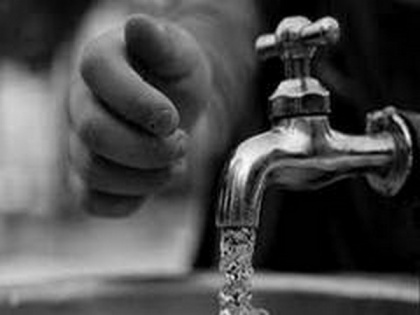Some rivers showed improvement in water quality during COVID-19 lockdown last year, government informs Lok Sabha
By ANI | Published: August 6, 2021 12:42 AM2021-08-06T00:42:06+5:302021-08-06T00:50:03+5:30
Monitoring of rivers during March and April last year to assess the impact of COVID-induced lockdown showed that some of them - Brahmani, Brahmputra, Cauvery, Godavari, Krishna, Tapi and Yamuna - showed improvement in water quality, the government informed Lok Sabha on Thursday.

Some rivers showed improvement in water quality during COVID-19 lockdown last year, government informs Lok Sabha
Monitoring of rivers during March and April last year to assess the impact of COVID-induced lockdown showed that some of them - Brahmani, Brahmputra, Cauvery, Godavari, Krishna, Tapi and Yamuna - showed improvement in water quality, the government informed Lok Sabha on Thursday.
Minister of State for Jal Shakti Prahlad Singh Patel said in a written reply that water quality monitoring of rivers was conducted by the State Pollution Control Boards (SPCBs) and Pollution Control Committees (PCCs) during March and April 2020 to assess the impact of lockdown due to COVID-19 in the country.
The exercise was undertaken on 19 major rivers - Beas, Brahmputra, Baitarni, Brahmani, Cauvery, Chambal, Ganga, Ghaggar, Godavari, Krishna, Mahanadi, Mahi, Narmada, Pennar, Sabarmati, Satluj, Swarnrekha, Tapi and Yamuna.
The assessment was based on monitoring of parameters namely pH, Dissolved Oxygen (DO), Bio-chemical Oxygen Demand (BOD) and fecal coliform.
"Based on monitoring results, some of the rivers (Brahmani, Brahmputra, Cauvery, Godavari, Krishna, Tapi and Yamuna) showed improvement in water quality which could be attributed to minimal industrial effluent discharge, no human or anthropogenic activities, cattle movement, etc," he said.
The minister said that no perceptible improvement was observed in Beas, Chambal, Satluj and Swarnrekha rivers.
"Along various stretches of Ganga and its tributaries, varying degrees of improvement in a few water quality parameters was observed, which may be attributed to increased availability of freshwater due to rainfall in the catchment area and reduction in human and/or anthropogenic activities," he said.
In the case of the Sabarmati and Mahi rivers, water quality remained unchanged.
"As such, no definite trend was observed to substantiate the impact of lockdown," he said.
He said that Central Pollution Control Board in association with the SPCBs/PCCs regularly monitors the water quality of rivers and other water bodies in the country through a network of monitoring stations.
As the CPCB report of September, 2018, 351 polluted river stretches were identified on 323 rivers based on monitoring results in terms of BOD, an indicator of organic pollution.
He said rivers in the country are polluted mainly due to the discharge of untreated or partially treated sewage from cities and towns and industrial effluents in their respective catchments.
It is the responsibility of the states and union territories and local bodies to ensure treatment of sewage and industrial effluents to the prescribed norms before discharge into rivers, water bodies or land to prevent and control pollution, the minister said.
Patel said that the National River Conservation Plan (NRCP) of the Ministry of Jal Shakti has so far covered polluted stretches on 34 rivers in 77 towns spread over 16 states with the sanctioned cost of projects at Rs 5965.90 crore and sewage treatment capacity of 2522.03 MLD has been created.
Under the Namami Gange Programme, a total of 346 projects, including 158 projects for sewage treatment of 4948 MLD and sewer network of 5213 km have been sanctioned at a cost of Rs 30,235 crore, he said.
( With inputs from ANI )
Disclaimer: This post has been auto-published from an agency feed without any modifications to the text and has not been reviewed by an editor
Open in app